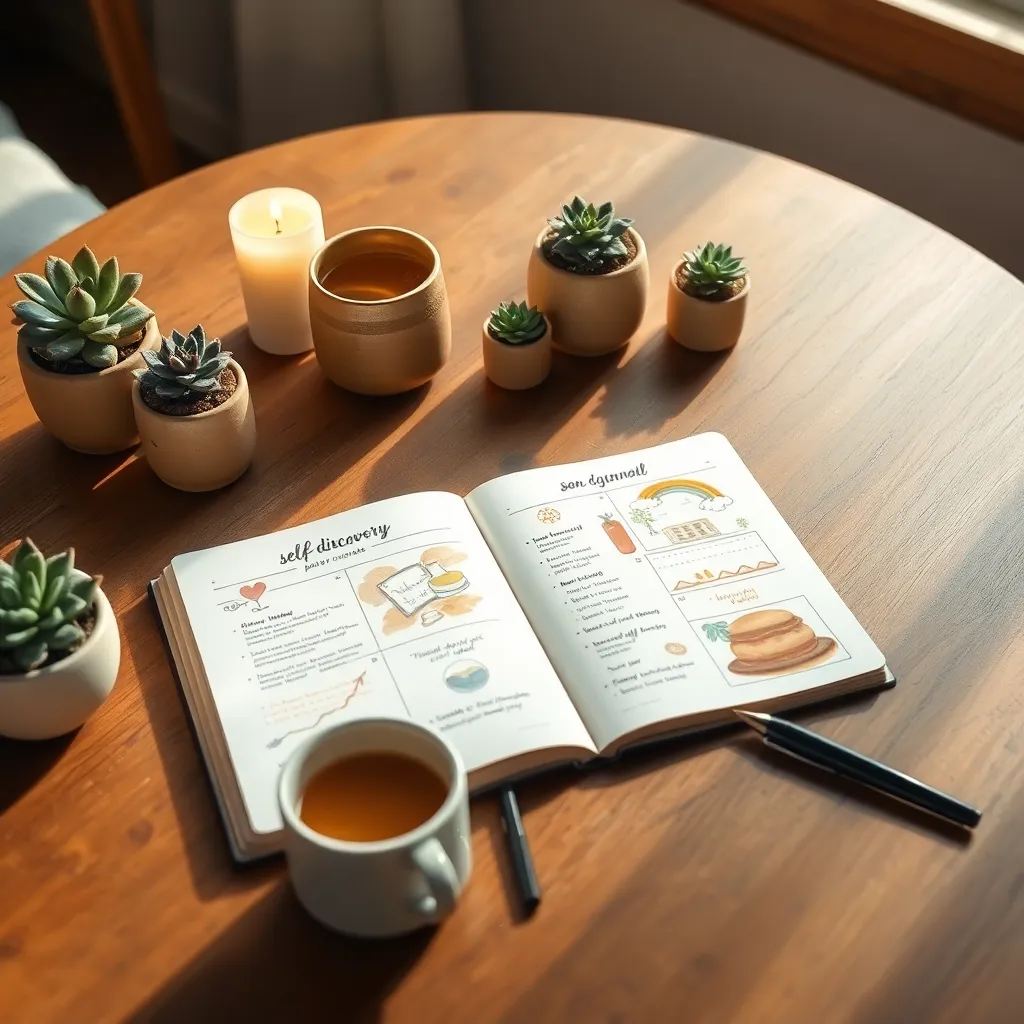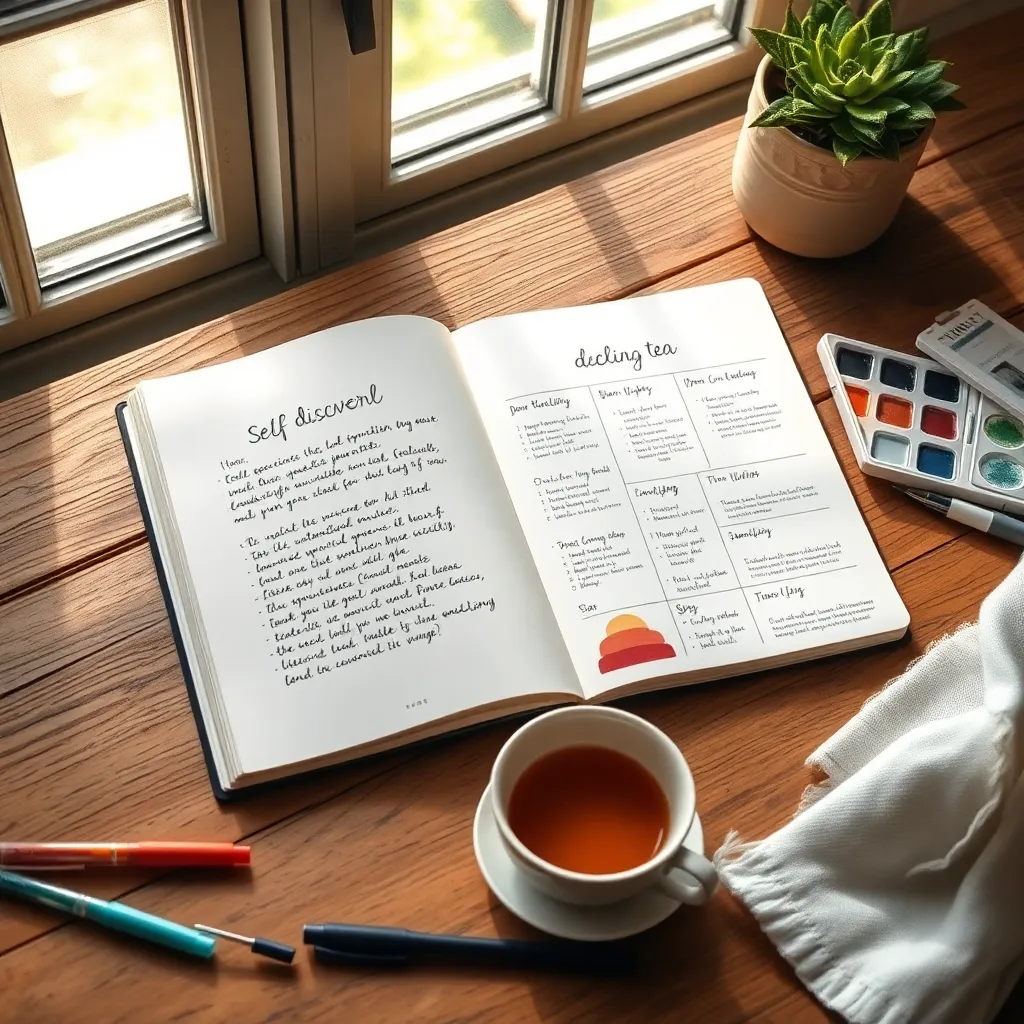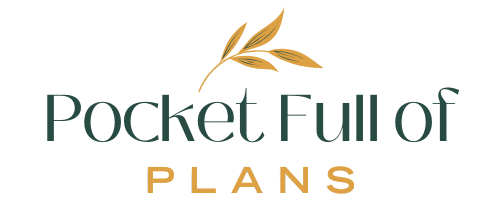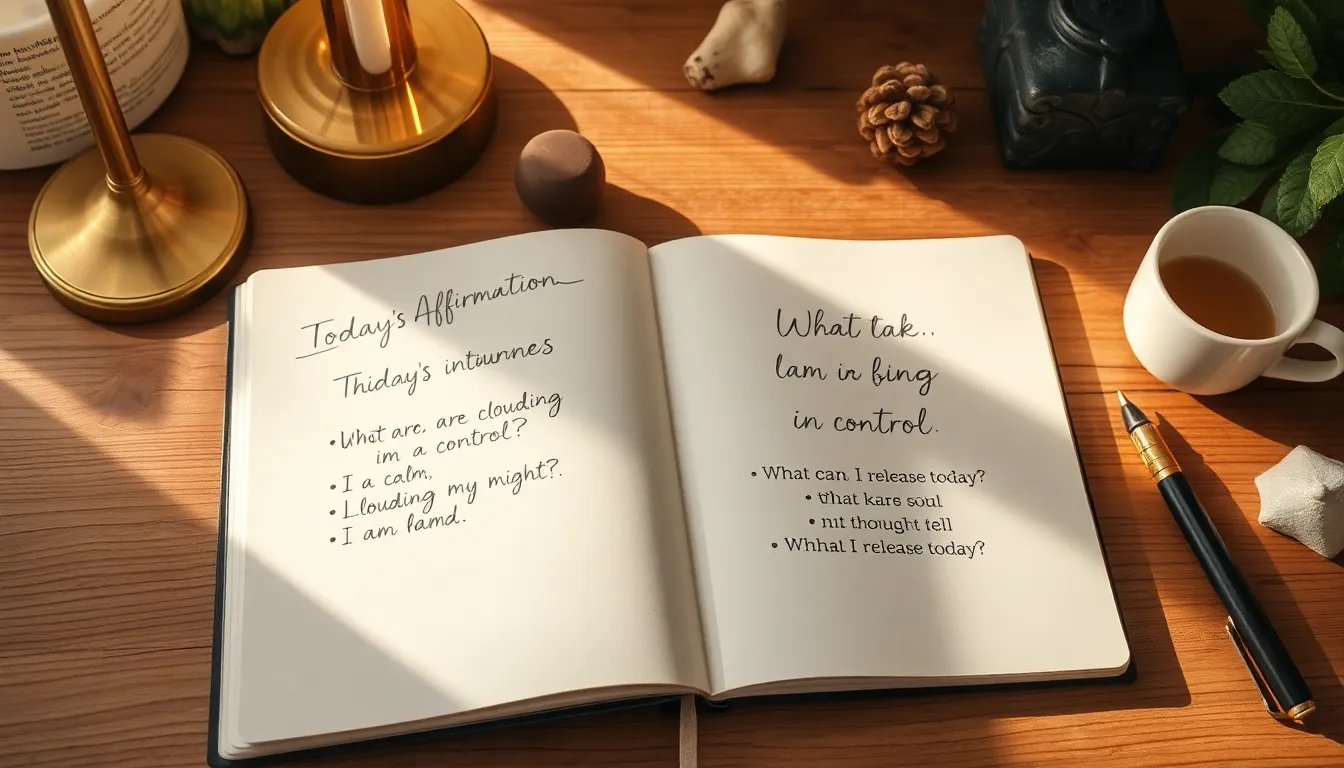In the whirlwind of life’s demands, journaling offers a serene escape, grounding our thoughts and emotions. It’s a powerful tool for navigating stress, granting us the mental clarity we need to thrive.
Discover how putting pen to paper can transform chaos into calm. With each entry, you’ll unlock a deeper understanding of your inner world, fostering peace and resilience.
Understanding Stress and Its Impact

Stress can cloud your mind, but journaling offers clarity. Start with a simple technique: brain dump. Write freely for a set time to release tension.
Consider prompts like:
- “What is my biggest stressor today?”
- “How can I nurture myself right now?”
Use these to focus your thoughts and regain calm.
Benefits of Journaling for Clarity

Journaling creates mental space by allowing you to organize thoughts. Start by setting a timer for five minutes and write freely about what’s on your mind. This brief practice can illuminate priorities and reduce overwhelm.
Prompts such as “What am I grateful for today?” or “What is one thing I can control right now?” guide focus during chaos. Use them to center your thoughts and find clarity, even amidst stress.
Setting Up Your Journaling Routine

Establishing a journaling routine can bring clarity to your thoughts. Begin by setting a specific time each day to write, even if it’s just for five minutes. Consistency is key in making journaling a habit.
Incorporate prompts like, “What am I grateful for today?” or “What is one small step I can take to reduce stress?” These questions help focus your mind and foster positivity. Trust the process—your clarity will grow with practice.
Techniques to Enhance Mental Focus

Begin your journaling with a mindfulness exercise. Take a deep breath, and write one word that captures your current state. This anchors your focus and sets the tone for clarity.
Try the gratitude and intention prompt. Each day, jot down one thing you’re grateful for and one goal for the day. This simple practice enhances focus by aligning your thoughts with positivity and purpose.
Reflective Prompts for Stress Relief

When stress peaks, journaling can be a calming refuge. Try this prompt: “What is within my control today?” to foster clarity and calmness. Focus on small, manageable actions to regain a sense of control.
Another effective technique is gratitude journaling. List three things you appreciate right now, no matter how small. This practice shifts focus from stress to positivity, enhancing mental clarity and resilience.
Conclusion: Creating Beautiful Outdoor Spaces
In navigating the complexities of relationships, especially during stressful times, journaling emerges as a powerful tool. This article explored five key concepts: enhancing communication by articulating thoughts clearly, fostering empathy through reflection, identifying emotional triggers, setting relationship goals, and nurturing self-awareness. Together, these insights can transform how we connect with our partners, friends, and family.
To begin your journey towards mental clarity and healthier relationships, start by setting aside just 10 minutes a day to journal your thoughts and feelings. This simple yet profound practice can illuminate aspects of your relationships you might have overlooked and provide a clearer path forward.
As you embark on this journey, consider bookmarking this article. By saving it for future reference, you’ll have a ready guide to revisit these vital concepts whenever you need a reminder or a nudge in the right direction.
Remember, the strength of your relationships lies not in perfection but in the continuous pursuit of understanding and growth. With journaling as your ally, you are empowered to cultivate deeper connections and achieve lasting relationship success. Embrace this opportunity to transform your interactions today and ensure a brighter relational tomorrow.


